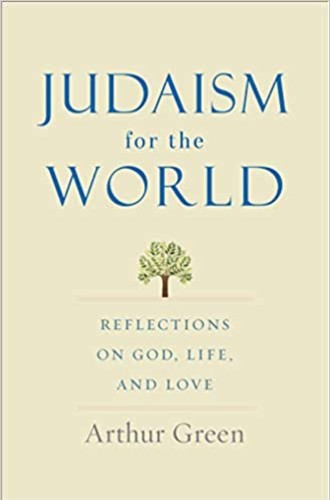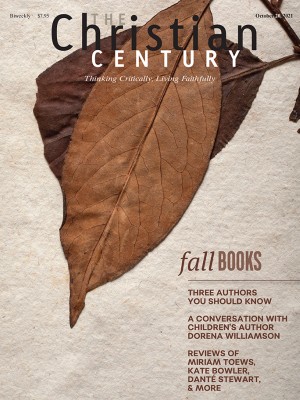Judaism for the World is the work of a master
Readers will relish the collected thoughts of Arthur Green, a historian and practitioner at the top of his powers.

Judaism for the World
Reflections on God, Life, and Love
This collection of essays is written by a master of religious life. That mastery includes both learning and living, and this volume gives equal weight to both the scholarship and the being of its author. Arthur Green is a rabbi, religious scholar, and Jew. The founding dean and current rector of the rabbinical program at Hebrew College, he has also taught at Brandeis University and served as an administrator at Reconstructionist Rabbinical College.
Green was one of the founding members of Havurat Shalom, a group devoted to communal Jewish religious life that started in 1968. In many ways, Havurat Shalom and its ethos set the tone for the rest of his life and career, with its combination of rich communal life and personal exploration of Jewish texts through scholarship. This book is dedicated to that group’s members “in enduring friendship.” It shows not only how to lead a holy and religious life but also how to create a system of education that ensures that others are similarly devoted and catalyzed.
Read our latest issue or browse back issues.
Typical of Green’s approach is an essay called “Scholarship Is Not Enough.” Here he notes that the younger generation of scholars of mysticism have a “desire not only to understand and analyze the profound thought of the Zohar, but to touch the sublime through their own involvement with it.” This is a veering away from the approach of an earlier generation that kept the claims of the text separate from the lived experiences of scholars.
To that end—the sense of being involved in a mystical happening—my favorite essay is an account of a trip Green took with nine other scholars of mysticism in the summer of 2019. They went to the sites of the life and death of a number of Hasidic rabbis, including Uman, the birthplace of Nachman of Bratslav. Green and his fellow travelers, all rabbis except one historian, journeyed to sites where Hasidic rebbes lived and died—not to “stretch out in supplication on the graves of the righteous” but “to tell them how much we loved them, and to thank them for having already blessed us so richly with their teachings.”
They go to Chernobyl, the home to Menahem Nahum, whose work The Light of the Eyes Green has translated and edited. In Kyviv, they see the Nazi massacre site Babi Yar and synagogues that were shuttered because those who used them were killed or driven to emigrate after “experiencing utter destruction.” On the journey from Bratslav to Uman, Green tells the story of how Rabbi Nachman (the great-grandson of the Baal Shem Tov, the founder of Hasidism) made the same pilgrimage. Knowing that he had tuberculosis and limited time to live, he told himself not to despair, a teaching that has now been transmitted the world over in many languages. That poignant message echoes for Green, who is in his early 80s.
Other essays cover various facets of the inward journey, including prayer, Jewish practice in the modern world, Judaism as counterculture, the meanings of the various holidays celebrated in the Jewish calendar year, and Judaism as a religion of love. Green also offers reflections on contemporary events, such as the 2018 shooting at the Tree of Life congregation in Pittsburgh.
The Baal Shem Tov’s “novel interpretations,” Green writes, are “meant to stir up the mind and lead people beyond ordinary ways of thinking.” The same can be said of his neo-Hasidic heir, Rabbi Green. We are fortunate that more of us than can fit in a classroom are enabled to become his students by reading his ideas. Not only reading them, but bringing them to life, for the life and teachings recounted in these essays would not retain their fullness if they did not have meaning off the page as well as on it.
It is rare to find a scholar of religion who both analyzes religious texts and talks about why they are personally meaningful to him as a spiritual being. Judaism for the World is well deserving of the National Jewish Book Award it won earlier this year in the category of contemporary Jewish life. I encourage anyone who is interested in the collected thoughts of a historian and practitioner at the top of his powers to grab this book and start reading. After all, any writer who declares cheerfully, “Part of being Jewish is knowing how to laugh at ourselves. Without that, religion really gets dangerous” must be worth reading.






